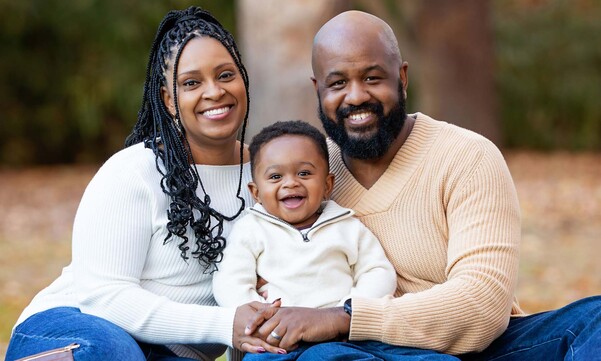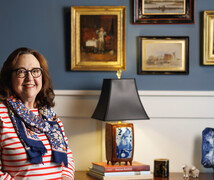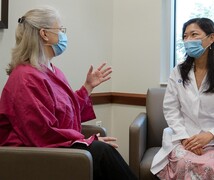Charlotte Finley blamed her deodorant when she woke up with a burning sensation under her arm. She wondered if it caused the itchy, dry patches she had seen on her right breast. Then the retired teacher from Stem, NC felt a lump in that breast during a morning shower. “I knew something was wrong, but I was in denial,” she said. Finley had just had a mammogram a few months before.
After confiding in her sister-in-law, Finley went to a local doctor who performed a breast biopsy. By that time, “my breast was dark and had scaly patches,” she said. “The doctor looked at me and asked if I had ever heard of inflammatory breast cancer.” Finley hadn’t then, but she’s learned more than she ever wanted to know since. Finley was diagnosed with the rare, aggressive cancer in 2017.
Inflammatory Breast Cancer Often Mistaken for Skin Infection
Inflammatory breast cancer accounts for 1 to 5% of all breast cancers, according to the National Cancer Institute, and is often mistaken for a breast infection like mastitis or a skin infection like cellulitis. The symptoms – skin redness, swelling, and pain – can be similar, although inflammatory breast cancer is also associated with skin thickening and a pitted appearance that resembles an orange peel.
It's common and appropriate for a primary care doctor to prescribe antibiotics when these symptoms are present, said Jeremy Force, MD, Finley’s medical oncologist and an expert in inflammatory breast cancer at the Duke Cancer Center in Durham. Problems arise when the symptoms don’t go away. “If symptoms get worse, people need to follow up with their doctor and ask what’s next,” Dr. Force said. Inflammatory breast cancer can be cured if caught early but left untreated, it can spread or metastasize beyond the breast quickly.
Duke’s Team of Experts Treat Inflammatory Breast Cancer
Finley chose Duke for her care because of its team of medical oncologists, surgical oncologists, and radiation oncologists. As specialists in inflammatory breast cancer, they have the expertise, tools, and treatments to treat it effectively.
First, Finley went through several rounds of chemotherapy. “This reduces the tumor size, which makes it easier to perform surgery,” Dr. Force explained. It also helps doctors determine if the cancer responds or is resistant to treatment.
The next step is a mastectomy to remove the entire breast, including the breast and muscle tissue, skin, areola, nipple, and most of the underarm lymph nodes. After surgery, Finley had radiation therapy to kill any remaining cancer cells.
Duke Cancer Center Became Part of Her Family
Through it all, Finley relied on her family – she is the oldest of six — her husband, Monte, and Charlene Evans Morton, her pastor, for support. Yet it was a phone call from Dr. Force, who called to check on her, that made her welcome him as a family member too. “I remember thinking, ‘he really cares about me,’” she said. “I knew he was busy, yet he cared enough to let me know he was there for me. He wanted to encourage me. He became one of my children.”
Finley felt that way about many of the people she met at Duke. “From the person who opened my car door to the people I saw in radiation and chemotherapy, who checked me in, the Duke Cancer Center became part of my family."
Today Finley Is Cancer-Free
In 2018, Finley learned she was cancer-free, and she remains that way today. Now 65 and teaching reading at a local elementary school, she is on endocrine therapy to block her body’s production of estrogen and prevent the cancer from recurring. She goes to Duke every six months for checkups.
Looking back, Finley says, “I realize how blessed I am and appreciate all I have -- my family, my church, my coworkers, all the people who were there to support me. I had people fighting for me and pushing me to fight. That made all the difference in the world.”




